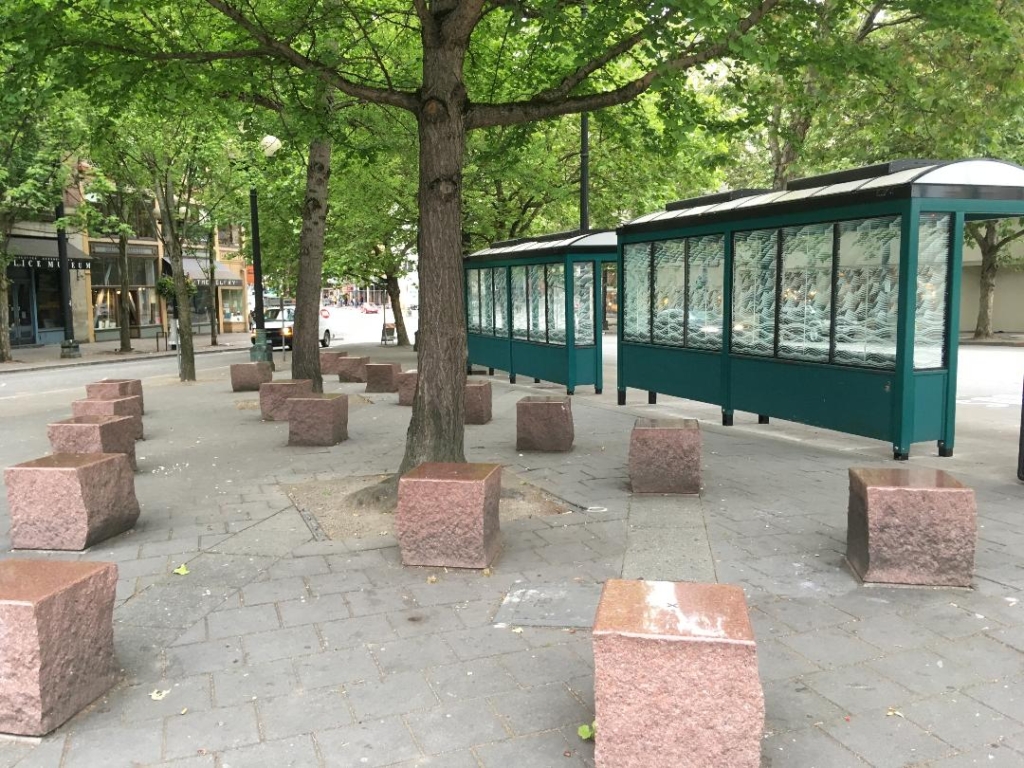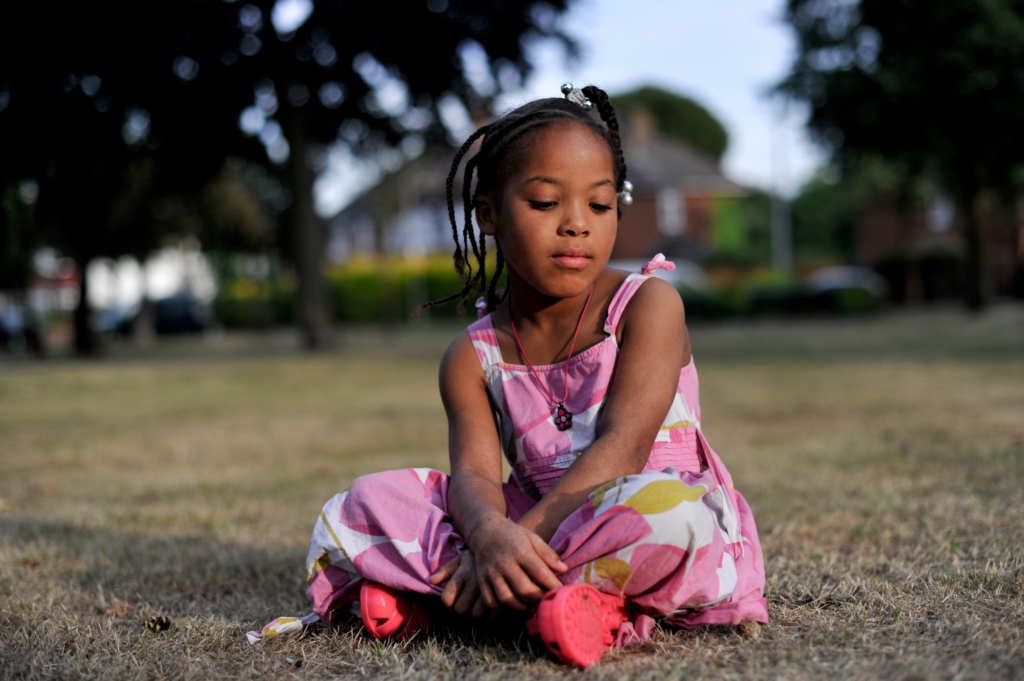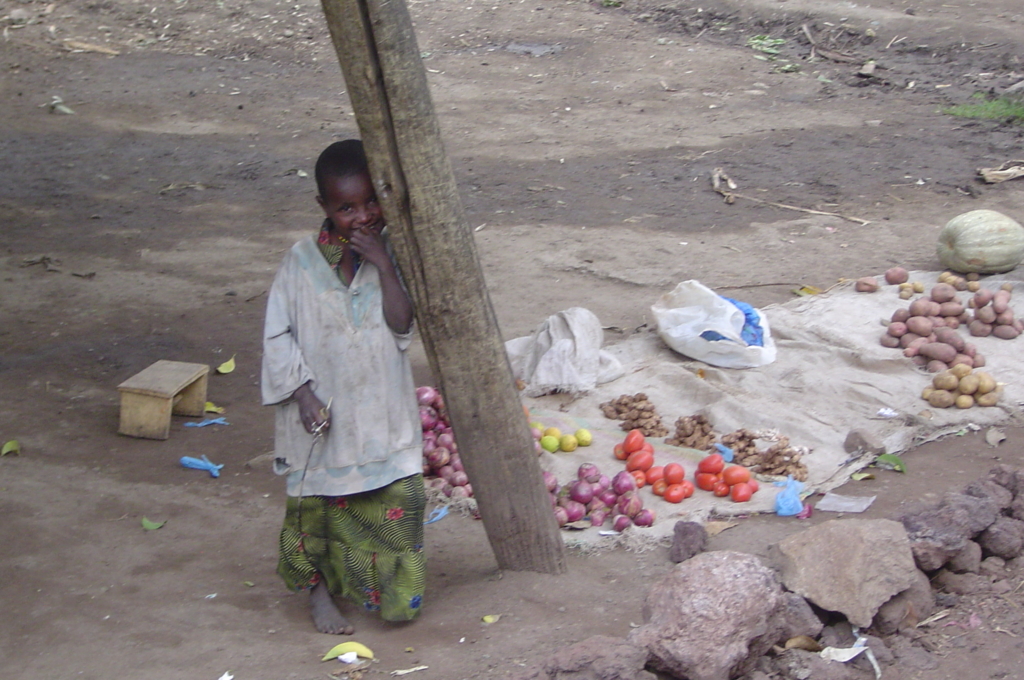I stand at a bus stop under falling leaves. Two women sit side-by-side, leg-to-leg on a bench. They are over seventy, I guess, seniors for sure. Their eyes appear darkly rimmed in eyeliner, but no, their teardrop shape is natural. Their teeth, though aged, glow against their ruby lips and dark skin. They are shrouded in layers of sheer, gauzy cotton billowing over colorful, patterned dresses. They are engaged in language, the inflections familiar to my ears, yet I don’t understand.
Two African-American girls, kindergartners perhaps, frolic on the sidewalk. Their mother stands near with her attention divided between her daughters and her cell phone. One girl’s hair is braided in rows and tied with beads. The other has tufts loosening from her two messy ponytails. Holding each other’s wrists, they giggle and skip, twirl and jump. The girls notice the elder ladies sitting under the bus shelter, too, with curiosity. We all stare at their beauty.
The little girls wave. The ladies are steeped in conversation, the language I recognize. The girls seem fascinated by these “different” ladies and try to draw their attention. Loud laughter? No reaction. Kicking leaves past where they sit? Nothing.
The girl with the braids grabs her sister by the hand and shyly walks up to the ladies. She waves and says, “Hello.”
No response.
The girls wave again. Maybe these ladies are sisters, too, like them. She knows they are not speaking English. This time, the girl with the messy hair tries, “Hola, como estas?” Maybe it’s Spanish?
The ladies finally acknowledge the inquisitive girls. One throws the folds of her garment back away from her face. She says, with a rapid and escalating, “Da-da-da? Da-da-da?” It is clearly not “Hola, como estas?” They say, “Selam. Endemin-nesh?” It is Ethiopian—Amharic. I know it from my travels. One girl giggles. The other crosses her legs and squirms. Both seem happy for their new connection.
Regardless of language, the universal greeting of a smile stands, “Hello. How are you?”
I can only wonder why many people lose their inquisitive nature as they “mature” into adulthood? These young girls seek to understand strangers, people different in language, in age, in clothing, in culture. They will likely be this way until their purity is slowly eroded by others in their environment. The children will learn to adopt our words, our actions, until they become their own.
How do your words and actions shape others? Are you open-hearted and open-armed? Or have you already crossed your arms with stiff judgements that exclude and divide? I challenge you to see the world and those around you with fresh eyes and a pure heart like these kindergartners at the bus stop. A simple wave. A “hello.” A brave, “Como estas?” per se. In an effort to connect with and know others, you will reveal your own heart.
AmoEsteDia. LoveThisDay.




Grateful for the universal language of a warm smile.
Yes, Amy. A little, genuine smile says it all. Keep shining!
Loved this, Laura. Oh to be open-hearted and open-armed, and to see those around me with fresh eyes and a pure heart. Well said!
Thank you so much, Terry. Keep spreading the joy.
Great piece, Laura! As we both know, a smile and open-hearts/minds can overcome any language barrier.
Thank you, Heather! You, too, live with open arms for folks different than you. It’s a beautiful quality.